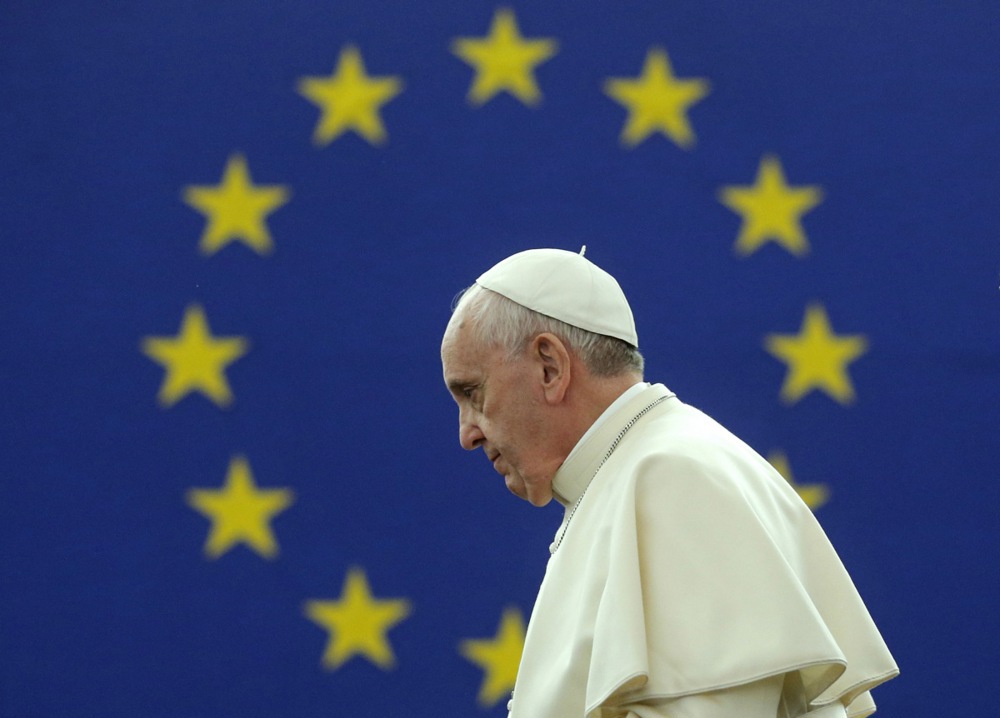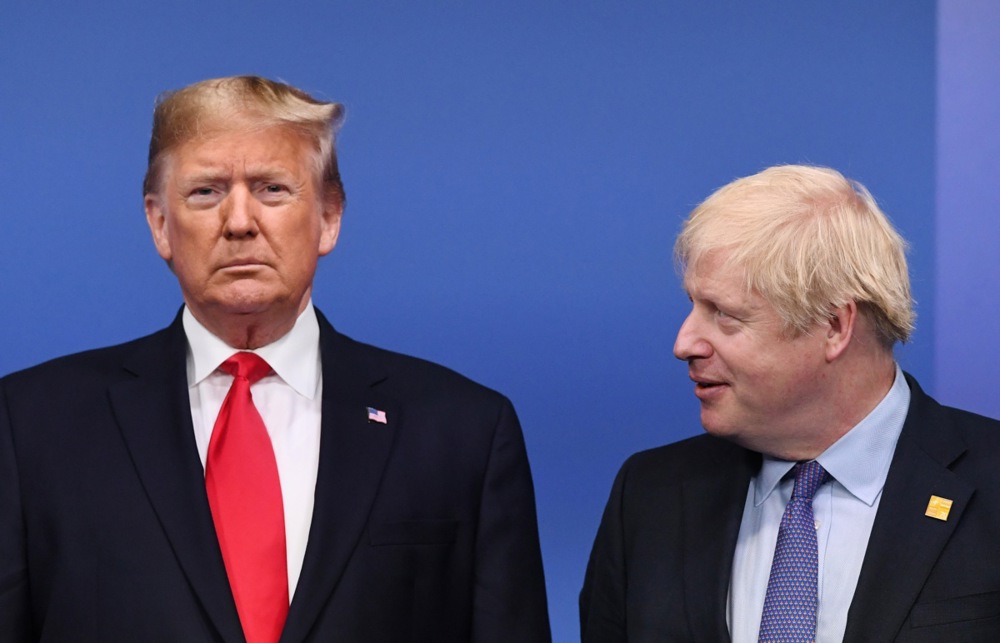Just as the American Democrats and Never Trump Republicans have been propelled into full panic mode by the high possibility that President Trump will be reelected, the western Europeans – who had confidently assumed along with their American analogues that the dreadful Trump phenomenon was a terrifying meteor that had passed into oblivion – are now preparing for Trump’s return by conducting a self-strengthening seminar like a volunteer calisthenics class.
A recent article in Foreign Affairs (the journal of the Council on Foreign Relations in New York), by five of the continents leading academic authorities on international relations, explicitly states that Trump is hostile to Europe. The five are Arancha Gonzalez Laya, Camille Grand, Katarzyna Pisarska, Nathalie Tocci, and Guntrum Wolff.
The quintet wrote that “Trump demonstrated that his only alliance was with his own interests,” (other national leaders having no such impulse). They implicitly blame him for a deterioration of relations with China and in a real stretch state that “thanks in part to policies instituted by Israeli Prime Minister Benjamin Netanyahu whom Trump backed, a hot war has broken out in the Middle East.”
In this they are implying that Israel was partly responsible for the terrorist attack by Hamas on October 7, and they seem not to notice that Trump and Netanyahu parted company several years ago, after the Soleimani affair.
The catalogue of Trump’s alleged shortcomings is almost as frantically extensive as those routinely trotted out by his domestic opponents: he was insufficiently warm towards Angela Merkel, ”did not hesitate to withdraw from the 2015 Iran (nuclear) deal,” withdrew from the Paris Climate Accords, (because they were both disasters), and “seemed to withdraw from (America’s) lead role in supporting the rules-based international order.”
The quintet are not carping and shallow journalists but distinguished intellectual foreign policy specialists. Yet they boldly state that “Trump pressured Ukraine, in 2020, to damage his Democratic rival’s candidacy. His hostility to illegal immigration into the United States is “hobbling EU efforts to enact a general policy on migration… The world has grown accustomed to his outrageous statements and decisions, making individual transgressions feel less shocking and less crucial to resist.”
Populism is designated a threat to all Europe. This outpouring of juvenile grumpiness reaches a climax with the assertion that a reelected “Trump may well seek to further weaken democratic institutions in the United States, including the Department of Justice, and foment general disdain for the rule of law. This would embolden populists and Euroskeptic parties… ( and) endanger European unity. ”
Foreign Affairs‘ quintet are representatives of the five largest EU countries, and they may be assumed to reflect the most well-informed European opinion – yet they collectively reveal a stupefying ignorance of the United States.
In 2020, President Trump asked the president of Ukraine what the Bidens had done commercially in his country; he did not ask for a condemnation of the Bidens, and the impeachment of him on this matter was overwhelmingly rejected as scurrilous, and he was acquitted by the U.S. Senate. The ancestors of most Americans came to that country to get away from the conflicts, socioeconomic sclerosis and official authoritarianism of Europe.
American support for Western Europe has always been based on its perception that the U.S. national interest benefited from the healthy existence of democracy in Western Europe and the Far East so that those areas did not fall entirely into the hands of anti-democratic countries, as almost occurred in World War II. The implication that the president of the United States should be pursuing anything other than the national interest of his country does not require a reply.
Not deserving of a reply but requiring one is the expression of concern that Trump could weaken democratic institutions such as the Department of Justice, which in the hands of his opponents has been transformed into an arm of the dirty tricks division of the Democratic National Committee and the prosecution service has become a source of frivolous, vexatious, and grossly unconstitutional harassment of the leader of the opposition. If this was emulated in any member of the European Union, it would bring down upon it the righteous condemnation of every civilized person in the EU.
Trump will not abandon Ukraine; he will propose new borders for Ukraine fairly close to the demarcation of the existing conflict on condition of an unambiguous Russian guarantee of Ukraine’s sovereignty and a guarantee of its security within these new borders from all of NATO. This would be quite different from the worthless guarantees given Ukraine by the major powers when it handed over the nuclear weapons it inherited from the Soviet Union.
While his formulation of this point was unnecessarily abrasive in his remarks in South Carolina last week, Trump will be an absolutely implacable ally of all NATO countries who make a serious effort to honour their commitments to dedicating two per cent of GDP to military expenses.
Since this is what these authors recommend, their objection to Trump’s stance is not easily comprehensible. The problem that is revealed by this Foreign Affairs article is that even these highly educated European foreign policy experts have grown complacent and entitled after decades of overindulgence from the United States.
The way to make the Atlantic alliance stronger than ever is for Europe to pull its weight, which these authors propose. But they only propose it because they mistakenly entertain the fear that Donald Trump is an an authoritarian demagogue and isolationist who is lukewarm about democracy. They are correct in advocating that Europe strengthen itself and become more self-reliant, but their conception of the American national interest has been warped and diluted by decades of European freeloading and posturing.
The quintet should start their reanalysis by recognizing that the Brexit vote was in large measure the expression by the British people of a desire to avoid integration in Europe in favour of a closer and more traditional relationship with the United States and Canada.
Anti-Americanism in Western Europe is a far greater problem than Trump’s commendable ambition to strengthen America, a goal which Europeans should embrace and emulate.





Donald Trump will be the next President – and the world should be thankful for it